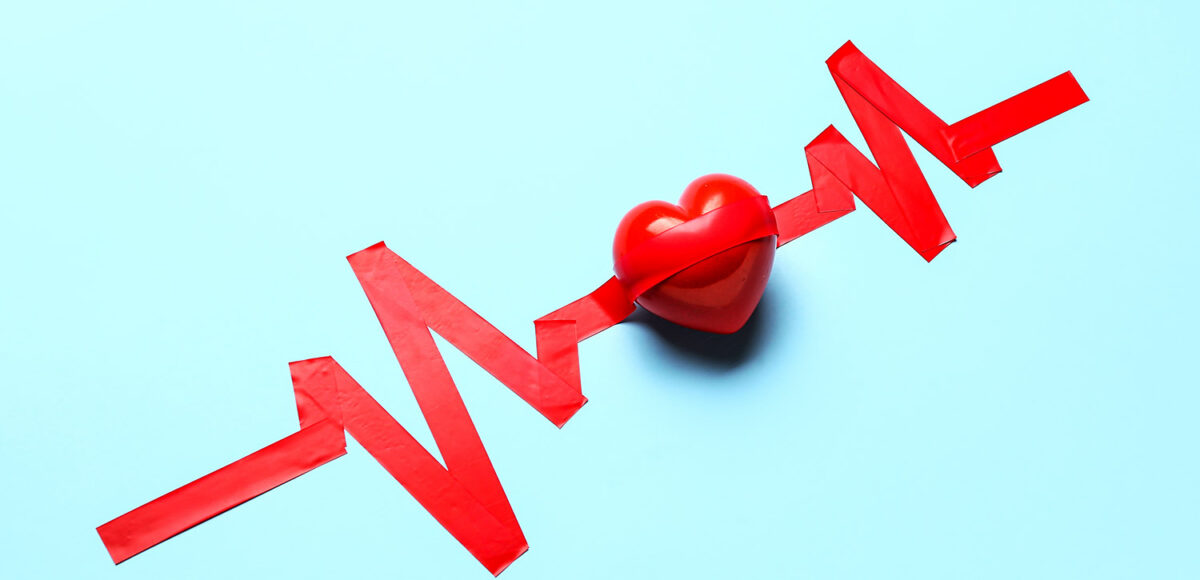You wake from a deep sleep because your heart suddenly starts racing. Your chest feels tight. Seemingly out of nowhere, your left arm begins to tingle.
Could it be a passing episode? A heart attack? Or worse?
Cardiac conditions—like atrial fibrillation, heart attack and sudden cardiac arrest —can leave you feeling breathless and frightened. At worst, a heart attack or an abnormal heart rhythm can lead to sudden cardiac arrest and have deadly consequences.
By learning to recognize the warning signs for these conditions—including how they manifest differently in women and men—you potentially can save your life or the life of a loved one.
With New Year’s resolutions around the corner, this critical information can also serve as an opportunity to be more mindful of heart-healthy choices in 2024.
What is atrial fibrillation, and who does it affect?
Atrial fibrillation, also known as AFib, is the most common type of abnormal heart rhythm, affecting more than 2.7 million in the U.S. alone. The number of AFib patients is expected to continue increasing as the nation’s population ages. Approximately 2% of people younger than 65 have AFib, and 9% of those older than 65 have it.
Sometimes AFib has no symptoms, but in most instances, it is characterized by shortness of breath, racing heartbeat, chest pain, fatigue, dizziness or fainting.
A number of factors can increase the risk, including aging, high blood pressure, coronary artery disease, heart failure, congenital heart defects, obesity, alcohol intake and diabetes. Sometimes the cause is unknown, but the condition can develop from any type of problem that changes the way the heart handles electricity.
AFib can lead to a host of potential health problems, including stroke and heart failure.
If you experience these symptoms, consult a doctor.
What are the telltale symptoms of a heart attack?
Men tend to feel more “traditional” symptoms of a heart attack, including pain in the middle of the chest that can spread to the back, jaw or arms. Heart attack symptoms in women tend to be more subtle and include indigestion, shortness of breath and extreme fatigue. Often, these symptoms will be attributed incorrectly to heartburn, overeating, stress or musculoskeletal pain.
Heart attack symptoms that affect both men and women include faintness, sudden sweating, nausea, heavy pounding of the heart, abnormal heart rhythms, loss of consciousness, restlessness, anxiety, and bluish lips, hands or feet.
Symptoms may start slowly and persist for hours, days or weeks before a heart attack. Not everyone has the same symptoms.
Research on heart health has largely focused on men, leaving women as an understudied population. In fact, every year, about 435,000 women in the U.S. have heart attacks, which kill six times more women than breast cancer. Of these women, 71% experience early warning signs like extreme fatigue, but many women do not recognize their symptoms as signs of a heart attack.
During a heart attack—whether in men or women—blood flow to the heart is blocked, often by a blood clot or by a buildup of plaque in the arteries. Because the heart muscle needs oxygen to survive, it begins to die when blood flow is blocked. Every second counts. This is why heart attack patients need to be rushed to an emergency department as quickly as possible.
If you believe someone is experiencing the symptoms of a heart attack, call 911 immediately.
How do these conditions differ from sudden cardiac arrest?
While a heart attack is a circulation problem, akin to a clogged pipe, sudden cardiac arrest is an electrical problem triggered by a disruption of the heart’s rhythm often due to ventricular tachycardia. Because cardiac arrest stops the heart from beating, the brain, lungs, and other organs do not get the blood and oxygen they need. Cardiac arrest can lead to death within minutes if not treated.
Symptoms include dizziness, loss of consciousness and shortness of breath. Within seconds of cardiac arrest, a person will become unresponsive and have trouble breathing. Sudden cardiac arrest is not necessarily preceded by heart disease, but many patients experience warning symptoms in the days, weeks and months leading up to an episode.
Someone experiencing a sudden cardiac arrest could drop to the ground and stop breathing. Bystanders who can provide cardiopulmonary resuscitation (CPR)—especially chest compressions—can save a life.
Many recent studies, summarized in a 2023 consensus in the journal Circulation, suggest that out-of-hospital sudden cardiac arrest survival increases when both CPR and an automated external defibrillator (AED) are utilized. CPR is intended to pump the heart to get blood flowing and circulating to organs. The AED sends an electric shock to the heart in an attempt to restore its normal rhythm.
Call 911 immediately if you think someone has gone into sudden cardiac arrest.
How can I protect my heart from heart rhythm disorders?
While genetics may play a role in many heart conditions—including heart rhythm disorders—there are proactive steps you can take to protect your heart.
These include eating a nutritious diet complete with leafy green vegetables; staying physically active with 30-minutes of moderate exercise each day; maintaining a healthy weight; avoiding smoking; managing stress effectively; and keeping your blood pressure at a healthy level.
We also recommend seeking care from a cardiologist annually, who can monitor your heart health and flag issues as they arise.
Dr. Christine M. Albert is chair of the Department of Cardiology in the Smidt Heart Institute at Cedars-Sinai. A cardiac electrophysiologist and epidemiologist, Albert focuses her research on epidemiology, risk stratification and prevention of sudden cardiac death and atrial fibrillation in multicenter clinical studies. Albert’s research on the impacts of diet, supplements, lifestyle, and genetics on heart rhythm disorders has resulted in multiple publications in The New England Journal of Medicine, the Journal of the American Medical Association, Nature Genetics, Lancet and Circulation.
Dr. Sumeet Chugh is the Pauline and Harold Price Professor and director of the Center for Cardiac Arrest Prevention in the Smidt Heart Institute. An expert in the diagnosis and treatment of heart rhythm abnormalities, Chugh leads groundbreaking research on sudden cardiac arrest and has published more than 300 research studies on heart rhythm disorders.







